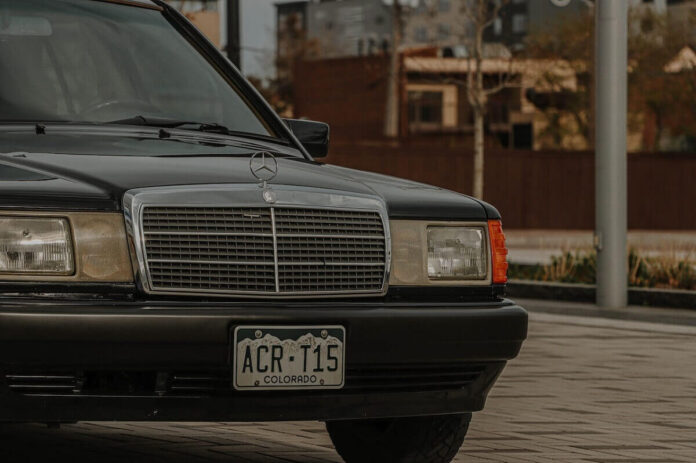Colorado is among the few states with a well-structured network of roads. However, it also faces concerning statistics – Colorado saw its highest number of traffic deaths last year, totaling 745 lives. The number of car accidents in Denver alone was well over 57,000 in 2022.
Driving is more than simply maneuvering a vehicle on the road. It’s a responsibility that requires you to be aware of your surroundings and follow a set of rules to keep yourself and others safe.
Many of us are familiar with the most common traffic laws, such as keeping to the right lane, stopping at red lights, and fastening our seatbelts. But other lesser-known traffic rules in Colorado may land you a traffic ticket without you realizing it. In some cases, disobeying these laws can even lead to jail time, especially if an accident causes serious damage or fatalities.
Whether you’re an avid driver or just started driving on the roads, you must abide by all Colorado traffic laws once you take the driving seat. Let’s go through ten Colorado traffic laws you might not be aware of:
1) Tailgating is Considered an Offense
Tailgating is extremely bothersome for any driver. But in Denver, Colorado, it’s a class-A traffic infraction and a serious offense as it can cause serious accidents.
Suppose an accident occurred due to overspeeding by the tailgating driver. In that case, you’re also eligible to file a personal injury lawsuit against the driver and recover expenses for medical treatment and vehicle damage. Having said that, if you’re in a car accident in the Denver area, call the O’Sullivan Law Firm to hire a car accident attorney and file a personal injury lawsuit. Experienced attorneys at O’Sullivan Law Firm will gather evidence from the car crash site, medical reports, and police records to validate the claim.
Even if a tailgating driver doesn’t cause an accident but fails to keep a 3-second distance from the car driving ahead, they may face fines up to $100, DMV points, and a surcharge.
2) Lane Splitting is Illegal in Colorado
E-bikes and scooters are becoming popular rides in Colorado after gas prices have skyrocketed, and Denver is no exception. In the second quarter of 2022, scooter and e-bike rides increased by nearly 76%. However, this has unfortunately resulted in more people visiting the ER with fractured bones and skulls. That’s why Colorado has made motorcyclist lane splitting illegal throughout the state. That means you can’t ride your motorbike between two rows of vehicles. Similarly, you can’t overtake a motor vehicle by driving in the same lane. If you violate these rules, you could end up paying hefty amounts in fines and may even face jail time.
Lane splitting can be extremely dangerous since it increases the risk of accidents and head-on collisions. If a motorcyclist hits a car from any side or deliberately speeds up when a car driver tries to change a lane, they’re held responsible for any damages and injuries.
3) You Can’t Buy or Sell a Car on Sundays
If you’re buying or selling a car, you’d likely be doing it on the weekend, typically on a Sunday, when people can easily spare time to visit and physically examine a car. But in Colorado, car sale and purchase on Sundays is officially illegal.
The origin of this law dates back to the early 1950s when the Colorado government put the blue laws into effect, which banned automobile trade on Sundays. However, the blue law only applies to the sale and purchase of automobiles and doesn’t extend to buying or selling spare parts, car accessories, and car maintenance or repair services.
4) Cell Phone Prohibition For Young Drivers
No matter what your age is, using a mobile phone while you drive can be extremely dangerous. Although adults are allowed to make or answer a call using a hands-free device while driving, young drivers don’t have this privilege.
5) Drivers Can Only Wear Headphones in One Ear
As mentioned above, it’s legal for adults to use their cell phones for voice calls while driving, though you can only use earphones in one ear for the call. That’s because drivers need to stay vigilant for any ambulances, police mobiles, or fire engines asking for way. The driver needs to be able to listen to horns, sirens, and other auditory cues clearly and drive responsibly.
6) You Must Leave a Note If You Crash into a Parked Car
If you crash into a parked car or even cause a scratch or dent, you’re legally bound to file a police report and leave a note with your name, address, contact number, vehicle registration number, and insurance information. Not abiding by this law is a class-2 offense, which results in criminal charges against you. If an incident has caused damage to the car or injuries to the passengers and you fail to report it to the police, you may be charged with a CRS 42-4-1606, which can potentially land you in jail.
7) You Can Drive Through a Yellow Light
Many Colorado traffic laws favor the drivers. Finally, some good news! While some states prohibit you from driving through a yellow light, it’s completely legal in Colorado. However, you should be mindful when driving through the traffic signal while it’s still yellow. If, by any chance, the traffic light turns red while you’re crossing the intersection, you’ll certainly get a traffic violation ticket.
8) You Can Turn Left on a Red Light
If you don’t see a sign prohibiting you from taking a left turn, you can turn left on a one-way road, even on a red light. So, if you’re stuck in a traffic jam and want to take a left turn for a shortcut after stopping at a red traffic signal, there’s absolutely no harm in doing that!
9) You Have to Maintain a Minimum Speed
We’re all familiar with the speed limit signs, but did you know that there’s a minimum speed rule in Colorado that prohibits drivers from driving too slowly? Colorado traffic law doesn’t allow you to drive so slowly that you block or interfere with the flow of traffic. Although it’s completely acceptable to drive slowly if you need to for safety reasons, don’t drive so slowly that you block the flow of traffic and create a traffic jam behind you.
Read Also: 5 Benefits of Workforce Housing Options
10) You Must Move Over If You’re Too Slow
If you’re moving way slower than the rest of the traffic in your lane, you must drive in the right lane to give space to speeding cars. If you’re on a multi-lane highway, be sure to drive as far to the right as possible if the vehicles in all other lanes are faster. Exit the lane only when you have to overtake a car or if you need to turn left.
Bottom Line
Even if you’re a novice driver, you’re probably already familiar with traffic laws regarding speed limits, changing lanes, and general driving rules. With the above list of lesser-known traffic laws, you can drive responsibly on the road and protect yourself from fines, penalties, and a not-so-enjoyable trip to jail. Stay informed and drive safely!




































